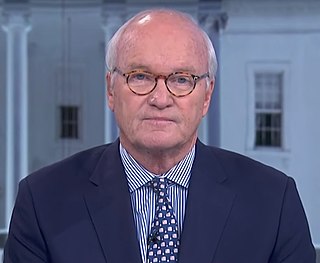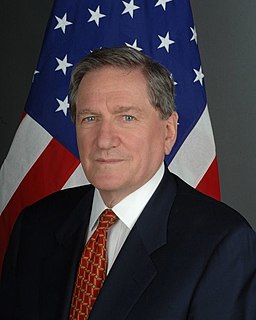A Quote by Mike Barnicle
The world is an increasingly dangerous, troubled place. There are nations that seem to be ungovernable. Nations where violence and religious combat are as common as the sunrise.
Related Quotes
If the resources of different nations are treated as exclusive properties of these nations as wholes, if international economic relations, instead of being relations between individuals, become increasingly relations between whole nations organized as trading bodies, they inevitably become the source of friction and envy between whole nations.
By 1938, Eleanor Roosevelt was so angry at FDR's policies, she writes a book called This Troubled World. And it is actually a point-by-point rebuttal of her husband's foreign policy. We need collective security. We need a World Court. We need something like the League of Nations. We need to work together to fight fascism. We need embargoes against aggressor nations, and we need to name aggressor nations. All of which is a direct contradiction of FDR's policies.
If we are to avoid that catastrophe [a nuclear World War III], a system of world order — preferably a system of world government — is mandatory. The proud nations someday will see the light and, for the common good and their own survival, yield up their precious sovereignty, just as America's thirteen colonies did two centuries ago. When we finally come to our senses and establish a world executive and parliament of nations, thanks to the Nuremburg precedent we will already have in place the fundamentals for the third branch of government, the judiciary.
The solidarity which binds all men together as members of a common family makes it impossible for wealthy nations to look with indifference upon the hunger, misery and poverty of other nations whose citizens are unable to enjoy even elementary human rights. The nations of the world are becoming more and more dependent on one another and it will not be possible to preserve a lasting peace so long as glaring economic and social imbalances persist.
We are not wholly patriotic when we are working with all our heart for America merely; we are truly patriotic only when we are working also that America may take her place worthily and helpfully in the world of nations . . . Interdependence is the keynote of the relations of nations as it is the keynote of the relations of individuals within nations.
Nations are like people. Once you understand the interactions between nations, it's easy to understand why things are done, in terms of foreign policy, in a certain way. But nations are not like people in the sense that we are cumulatively represented by others - and their interpretations of what our interests are may not be the same as what they really are. And that's what's dangerous, even in a democracy.
Norway, Iceland, Australia, Canada, Sweden, Switzerland, Belgium, Japan, the Netherlands, Denmark, and the United Kingdom are among the least religious societies on earth. According to the United Nations' Human Development Report (2005), they are also the healthiest, as indicated by life expectancy, adult literacy, per capita income, educational attainment, gender equality, homicide rate, and infant mortality. . . . Conversely, the fifty nations now ranked lowest in terms of the United Nations' human development index are unwaveringly religious.
The United Nations exists not merely to preserve the peace but also to make change - even radical change - possible without violent upheaval. The United Nations has no vested interest in the status quo. It seeks a more secure world, a better world, a world of progress for all peoples. In the dynamic world society which is the objective of the United Nations, all peoples must have equality and equal rights.

































